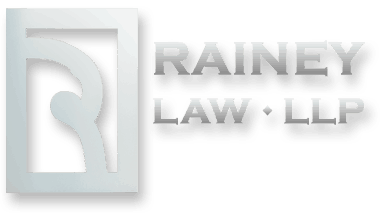 Limited Liability Companies (LLCs) have not been around in Oklahoma that long. Lawyers twenty years ago were still using old form corporate minute books and stock certificates for LLCs – both completely unnecessary for LLCs. Change comes hard, but these days most people agree LLCs are the presumptive entity of choice because they make for the best liability shield and because they provide the most flexibility. They also can be formed quickly and easily by filing forms online with the Oklahoma Secretary of State. These advantages have resulted in some of our clients forming multiple LLCs, sometimes as many as 20, for many purposes – this might be you. The result of having multiple entities can prove an administrative burden.
Limited Liability Companies (LLCs) have not been around in Oklahoma that long. Lawyers twenty years ago were still using old form corporate minute books and stock certificates for LLCs – both completely unnecessary for LLCs. Change comes hard, but these days most people agree LLCs are the presumptive entity of choice because they make for the best liability shield and because they provide the most flexibility. They also can be formed quickly and easily by filing forms online with the Oklahoma Secretary of State. These advantages have resulted in some of our clients forming multiple LLCs, sometimes as many as 20, for many purposes – this might be you. The result of having multiple entities can prove an administrative burden.
This article discusses a way to help organize LLCs to avoid these problems– a holding company. A holding company owns other business entities. A holding company in the context of corporations is often called the “parent” of its subsidiaries (corporations can also have holding companies, but for this article we are discussing LLCs). In LLCs, a holding company is typically another LLC.
So, what should you consider before creating a holding company?
- Purpose of your LLCs: What were your LLCs created for and what are they currently doing? Holding real estate? More than one property? Engaged in active business of selling goods and/or services? The answer will affect the business structure you need.
- Liability Protection. What potential liabilities are you facing? If you don’t need additional protections, then it could be too much of a hassle to form a holding company. It might make sense to reduce liability with your operating LLC (the primary business of goods/services) if you have large assets like vehicles and equipment and own real estate. You could put equipment in an LLC and real estate in yet another LLC – the holding company could then own the interest in all three LLCs. The equipment and real estate LLCs could create leases with the operating LLC. If done correctly, a lawsuit against the equipment LLC will likely not result in liability for the operating LLC. This is only an example of one use of a holding company, and it can be structured in several ways.
- Tax Elections and Consequences. It’s imperative you understand the tax election for each existing LLC or what the tax election will be for any newly created entities, so you do not inadvertently trigger adverse taxable sales and other taxable events. For example, if your existing LLC elected to be taxed as an S Corp, you should not allow an LLC which is not an S Corporation for tax purposes to own it. Doing this could automatically cause your S Corporation to lose its pass through tax status and have to pay corporate tax. We always recommend talking with a tax attorney on our team and your CPA – if you need a CPA and we can connect you with one.
- Ease of Tax Filings. Once your attorney and CPA approve your holding company plan, it’s possible it can help ease the burden of tax filings and reduce the number of returns filed. Again, talk to a tax attorney and your CPA.
- Some Extra Administrative Work is Required. To maintain the benefits and protections of a holding company, any holding company should have a separate bank account and accounting records. You will also need record of transfers between the holding company and subsidiaries and legally sufficient leases for any assets or real estate being leased between them.
A holding company structure can simplify management and tax filings and reduce transaction costs, and we are here to help you determine if it is right for your business. Again, we always recommend talking with an attorney and CPA to ensure you create no adverse tax or legal consequences for your business. Call us at 405-753-1500.




